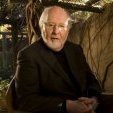-
Content count
39 -
Joined
-
Last visited
About Will
-
Rank
Dao Bum
Recent Profile Visitors
1,913 profile views
-
I'm working on something for school about the importance of understanding context in evaluating any sort of event or situation. (i.e., there are not necessarily absolutely true or good things, it is all relative and contextual) I'm wondering if anyone has any specific passage recommendations (preferably from the Mair translation) from the Zhuangzi that speak to my thesis. I definitely remember a lot of discussion along those lines but it's been a couple years since I last did a full read-through.
-

James Legge Translation (1891): "Like the Waves Carried About By the Wind"??
Will replied to Will's topic in Zhuangzi
Oh... I miss him too, even though I only knew him for a short time. -

James Legge Translation (1891): "Like the Waves Carried About By the Wind"??
Will replied to Will's topic in Zhuangzi
@Song of the Dao, your interpretation seems very plausible (thanks for offering it!). Although, like you, I can't actually read Chinese, so @Taoist Texts's interpretation also remains plausible with respect to the original text. Either way, it is clear that the phrase involving wind and waves is intended to have a negative connotation -- something Zhuangzi thinks is un-Daoist, so to speak. --------------- Also, random question, but what happened to @Marblehead? Did they leave the forum? -
It's pretty much impossible to go through life without holding at least some beliefs about topics like politics (or, even more often in my case, legal debates). These are situations where a lot of people disagree, however. And many of the people who disagree are all highly educated and are hard to dismiss as ill-informed or stupid. I'm not talking about random friends here; I'm talking about law professors, political philosophers, newspaper columnists, etc. Professor X might argue that the U.S. Constitution should be interpreted in one manner, while Professor Y might argue that the U.S. Constitution should be interpreted in another manner. Maybe I find X's argument more convincing, but on the other hand Professor Y is clearly very smart... Sometimes I simply escape this dilemma by concluding that Professor Y must not have researched the topic as fully as I have, or something like that. But still, there's doubt in the back of my mind: Do I really believe my own excuses for rejecting Professor Y's view? Make no mistake: I am a very careful person, and I won't take a view on an issue until I've researched it thoroughly. But even then, I inevitably question: How can it be that my view is valid if some very smart people take the contrary position? This line of thinking can quickly lead me towards truth relativism/nihilism and a lack of confidence in my own beliefs or arguments. Furthermore, even when I agree with certain commentators or philosophers on one matter, I often disagree with them on another -- which again leads me to question why my view differs from theirs. To put the point differently: So far as I know, there is no one -- not one person -- who holds political beliefs that are categorically identical to mine. I take little bits from various sources, but don't mirror any one source completely. That means that my beliefs are unique, which can cause me great stress as I realize my lack of humility in choosing to act on my own individual beliefs. If my view seems correct to me, how can it be that no one has ever come to the exact same conclusions as I am? Surely if I'm actually so clearly correct then lots of people would have held virtually identical belief systems in the past ... but they didn't, at least not entirely. Does anyone here, drawing on personal experience and most importantly Daoist principles, have any potential insights/ways to think about this dilemma?
-

How should I deal with political discussion? (Daoist perspective)
Will replied to Will's topic in Daoist Discussion
This is a good point. As you say, there may be a difference between genuine, open-minded exchanges and closed-minded polemics. I think for me the thing that can be trickiest is when I'm in a situation where my peers are almost exclusively (sometimes literally exclusively!) taking one political position on some issue. I tend to become very frustrated whenever that happens (no matter what the specific topic is), and I feel an urge to respond (somehow my nature is to feel frustrated when I feel like others are "piling on" some person or group and not giving their side fair consideration). But normally I stay silent because I don't want to be stigmatized for holding a different view. -

How should I deal with political discussion? (Daoist perspective)
Will replied to Will's topic in Daoist Discussion
Ah I just found an article that might be interesting: Authority without Authenticity: The Zhuangzi’s Genuine Pretending as Socio-Political Strategy by Paul D’Ambrosio and Hans-Georg Moeller https://www.mdpi.com/2077-1444/9/12/398/pdf No time to read now but I suspect it might have some interesting things to say. -

How should I deal with political discussion? (Daoist perspective)
Will replied to Will's topic in Daoist Discussion
Hmm... I wonder if a good Daoist case could be made for voting purely based on self-interest. Because most campaign issues won't really affect me, and because the candidates will probably all have approximately the same (very small) impact on my daily life, one could argue that you should just vote for a random candidate and not worry too much about it all. There is also the concept of third party candidates. I sort of feel like that might be the most Daoist option since it largely avoids the major party political mayhem and nonsense. However, there could be strategic voting concerns because as people above alluded to we should probably try to maintain freedom through our choices, and realistically a third party candidate in the US won't win and you may have enabled restrictions on freedom indirectly by "squandering" your vote. -

How should I deal with political discussion? (Daoist perspective)
Will posted a topic in Daoist Discussion
What thoughts do people here have about how to deal with political discussions at high school and at home? (asking as a quasi-Daoist) This is something I've struggled with recently. Sometimes I stay silent due to fear of judgement. Other times I speak up but later regret it (not because I said anything particularly bad but because I inherently am averse to disagreement and like to be on good terms with everyone at my high school). I very much enjoy legal writing and studying the law, which often necessarily becomes at least somewhat political. On the other hand, my Daoist intuitions strongly tell me that I probably shouldn't be very involved in politics. Already, my political views are fairly "fluid," and I constantly question them. Daoism, as I understand it, teaches epistemic humility, and it can often be hard for me to see holding political beliefs as anything other than the very authoritarian, moralistic crusading Zhuangzi argued against (of course, if being Daoist counts as a political belief, then I guess Zhuangzi had one too...). Of course, one possible option would be to stop actively engaging in politics entirely, and only maintain the very minimal level of fake political concern necessary to look "normal" among peers. This, of course, would not be very fun or satisfying, at least at first, and would require some fundamental changes in how I live my life -- particularly because, as mentioned, I'm very interested in law, particularly the contentious area of constitutional law, and I plan to go to law school eventually. Ultimately, one major issue is that I keep running into the fundamental problem that I find it very difficult to pursue a certain cause if I am not convinced that I'm doing the right thing! Thus, I begin to feel like political beliefs or "taking a stand" are crucial to living a meaningful life. Furthermore, the pull of Confucian sincerity (discussed eloquently in Moeller/D'Ambrosio's Genuine Pretending interpretation of the Zhuangzi) can be difficult to escape. I feel like "faking it" won't cut it in terms of political beliefs. I want to be sincere. I know no one here has all the answers, but does anyone have any thoughts? To be clear, this is not a thread to discuss specific political beliefs or doctrines. It is about the very concept in general and its effects. -

James Legge Translation (1891): "Like the Waves Carried About By the Wind"??
Will replied to Will's topic in Zhuangzi
Thanks so much @Taoist Texts and others who responded. You have really cleared things up for me. -

James Legge Translation (1891): "Like the Waves Carried About By the Wind"??
Will replied to Will's topic in Zhuangzi
To the best of my knowledge, Legge's translation of the Zhuangzi was first published in 1891, in this book (link below is to a publicly-available digital copy): https://books.google.com/books?id=jOdHAQAAMAAJ&pg=PA322&lpg=PA322&dq=Such+men+may+be+described+as+possessing+all+the+attributes&source=bl&ots=VQpUfJb56E&sig=QuzUOPo2JA5T0thgPOTKrn5XZps&hl=en&sa=X&ved=2ahUKEwiGs_D44e3eAhVK1oMKHXUHChkQ6AEwCXoECAgQAQ#v=onepage&q=Such men may be described as possessing all the attributes&f=false -

James Legge Translation (1891): "Like the Waves Carried About By the Wind"??
Will replied to Will's topic in Zhuangzi
Wait really? In what sense do you mean "disturbed"? -

James Legge Translation (1891): "Like the Waves Carried About By the Wind"??
Will posted a topic in Zhuangzi
I am a little bit perplexed by the following passage (https://ctext.org/zhuangzi/heaven-and-earth): (obviously there's more to the passage context that I had to cut out) I really love the phrase "like the waves carried about by the wind," as it seems to perfectly describe the ideal Daoist (someone who is carried through life in a natural manner, "going with the flow," so to speak). But it seems to me that the passage takes a negative view of living "like the waves carried about by the wind." It appears to contrast that with living with "all the attributes of the Dao." Is there something I'm missing about the context? Help!! -
Hehe good point. Although I can't say I really disagree with the theory. It makes sense, particularly from the "Zhuangzi" point of view, which seems to be that virtually everything is "socially constructed" (even the idea of "social construction"!) @Marblehead, sorry to draw you into this haha, but just wondering if you can think of any passages or insights from Taoism (or other faiths, I suppose) about gender. Or have any other thoughts given what's been said so far in the thread.








